As the seasons begin to change, every rider in northern climates begins planning what to do with his or her motorcycle during the winter months. And experienced riders know this is a dual job: doing some kind of mechanical prep for sitting out the snowy months, and thinking about whether to keep the motorcycle fully insured during those non-riding months.
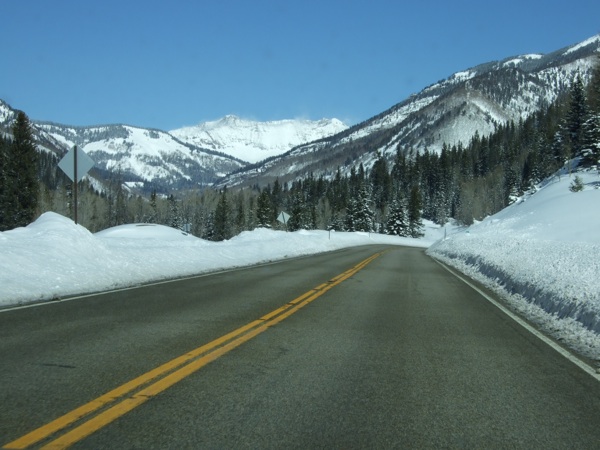
It may seem like a smart idea. After all, for a good quarter or third of the year, your motorcycle is out of service, stored safe and sound in your garage, right? So, in theory, canceling your insurance during the winter months could save you some money. However, when you really look at the whole picture, it starts to sound like a really bad idea.
For one thing, theres sure to be that glorious January day when the temperature suddenly rises and the sun shines brightly, and you start feeling the powerful temptation to hop on your motorcycle and take it out for a ride. If you cancelled your insurance for the winter, you and your bike would not be insured for this ride. This might seem like a chance worth taking (after all, its such a nice day!), but keep in mind that you face several accident risks that are worse during the winter than in warm weather months.
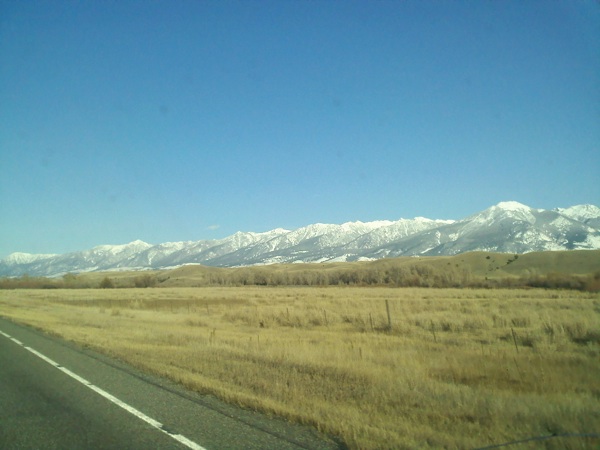
Risks of taking your motorcycle out for a ride during balmy winter days:
• Youre probably at greater risk of laying the bike down during the winter than in the summer because of all the salt and gravel on the roads.
• Despite a day being bright and sunny, roads can still be icy. During one recent winter, a Markel American policyholder hit a patch of ice, lost control, slid off the roadway, and fell down a 50-foot cliff.
• Wild animals, like deer, elk and moose, tend to be more active during hunting season/winter months, so you stand a greater chance of hitting one, or swerving to avoid an animal, losing control and crashing.
Another risk is the potential of physical damage to the bike while it is parked “safe and sound” in storage. Every year, Markel American gets damage claims on motorcycles where, even though they were safely stored for the winter, something happened to damage their bike. The “comprehensive” portion of your policy covers this kind of incident, another good reason not to cancel your insurance during the winter.
Some of these claims will make you laugh out loud … and cry:
• Drywall work was being done in the garage where the bike was stored, so it was moved outside. Because the garage was being heated for the work, snow and ice on the roof melted loose, slid off, landed on the motorcycle causing $2,500 in damages.
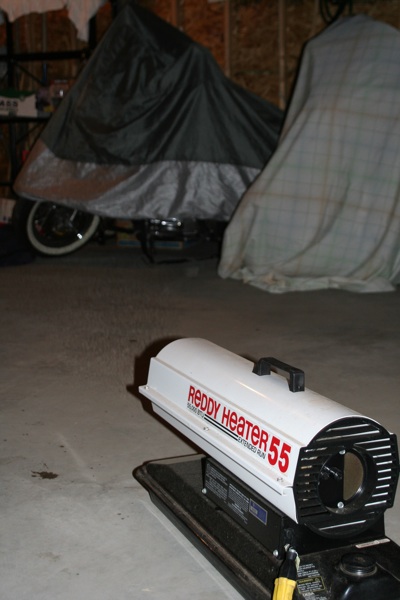
• A malfunctioning propane heater set fire to house and garage, burning everything in the garage including the motorcycle. It was a total loss valued at $12,500.
• An owner took his motorcycle to a shop for maintenance and winterizing. While it was parked outside the shop, it was vandalized to the tune of $2,890 in damages.
• The custom motorcycle was parked safe and sound in the house for the winter. However, a fire started in the kitchen and burned the house—along with the motorcycle—to the ground. Not so surprisingly, the motorcycle was a total loss, valued at $21,250.
• The motorcycle was being kept in a storage shed for the winter. However, after a big snowfall the shed roof collapsed onto the motorcycle causing $8,900 in damages.
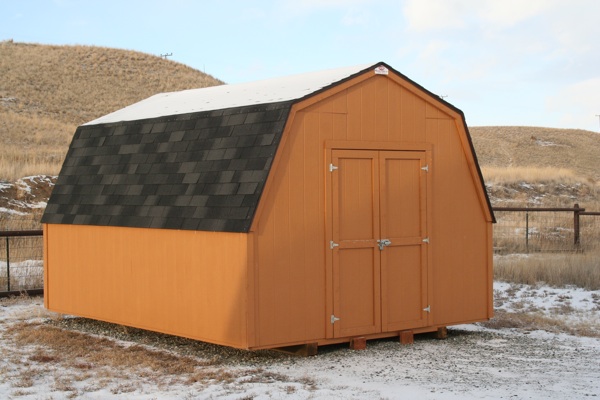
• While the motorcycle was stored for the winter, rodents chewed the seat and electrical wiring, and made a nest between the frame and engine causing $1,700 in damages.
• A snowplow piled snow onto the top of the motorcycle when it was parked, causing collision damage when it tipped over. Damage to the handlebars, tank and chrome came to $3,400.
There are some other policy implications to consider when you think about “saving money” by canceling your coverage for the winter. Remember that great “renewal discount” you got when you established your policy? You can kiss that goodbye when you restart your coverage in the spring and get the same rate as a brand new customer, even though you may have been with your insurance company for several years. This means that by canceling your policy in the winter to “save money” you may actually be costing yourself money.
The savings youre getting through “diminishing deductibles” would probably be lost as well. This feature offered by some insurance companies, including Markel American, means that for each consecutive year you are “accident free,” your deductible decreases by 25 percent, bringing it down to $0 after four years. If you were to cancel your policy during the winter, you are therefore bringing an end to your consecutive “accident free” years, and would have to start from scratch when you start up your policy again in spring.
Should you choose insurance that offers a winter “lay up?”
Some insurance companies advertise residents of the northern regions a “discounted” policy that provides for a “lay up” period during the winter months when the bike wont be ridden. During the lay-up period, coverage is reduced automatically to comprehensive only—protection against theft and damage that might occur during storage—providing a perceived overall savings. The implication is that policies without the lay up feature would cost you more. Not necessarily true. You may already be getting this kind of savings. And besides, you may not be covered should you take that ride on one of those warm, sunny January days.
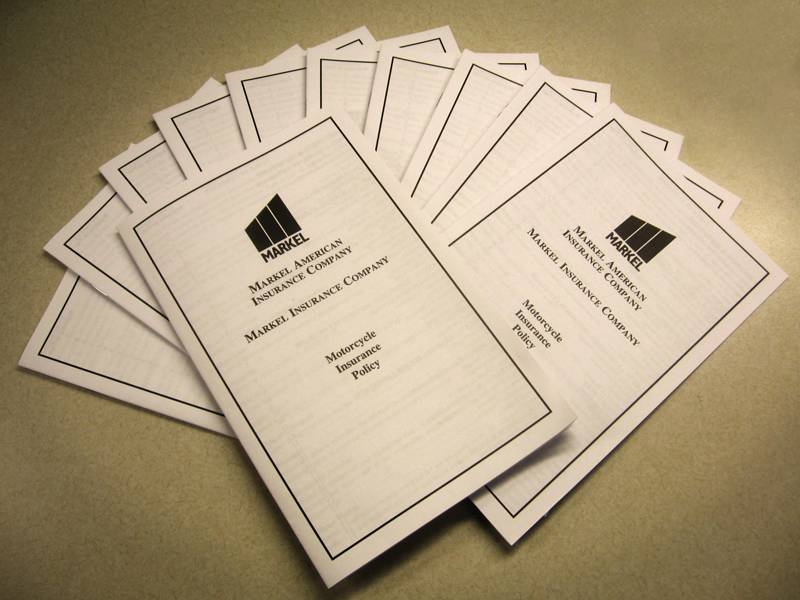
Perhaps your insurance already has a winter adjustment “built in.”
Other companies factor your geographical location into your rates, giving you built-in savings if you live in a wintry zone. For example, Markel American knows that a motorcycle owner in Minnesota will rarely be riding from November to March, and applies this information when calculating the annual premium. Meanwhile, the bike is fully covered for the anything bad that might happen, as well as for that bright, sunny January day.
By contrast, a rider with the exact same record and bike in Florida or Arizona, who has a chance to ride every day virtually 12 months of the year, would pay a higher annual premium.
So if you live where the wind and snow blows cold, make sure your bike is properly maintained and prepared for going on a “winter hiatus.” And make sure you have the right kind of motorcycle insurance that will keep you and your bike fully protected, whatever you might decide to do and whatever might happen to your bike. After all, you want to be in one piece—both physically and financially—when spring beckons you back to the open road!
Winter has an entirely different meaning if youre spending it in northern Minnesota compared to a more mild climate state like Tennessee (not to mention states like Arizona or Florida who barely have the word “winter” in their vocabularies). In Tennessee and other relatively mild locations, youre likely to ride your bike from time to time, weather permitting. But in truly arctic states like Minnesota, you may not get the chance for several months.
Please read our story on Storing Your Motorcycle for Winter, and then add these additional tips from an insurance company on what to do to “hibernate” your ride in the colder climates.
• If your bike has a carburetor, drain it.
• Add stabilizer to the gas tank and fill it with gas.
• Change the oil (whether it’s due for a change or not) and do a general all-around lubrication. Don’t forget to lube and adjust the drive chain (if your bike has one).
• Change and top off all other fluids (brake and clutch fluids, antifreeze if the bike is liquid-cooled, etc.).
• If you’re storing the bike for an extended time, remove the plugs and squirt oil into the cylinders to lubricate them. Spin the motor a bit using the starter to distribute the oil, then replace the plugs.
• Wash the bike thoroughly and remove bugs or road tar. Also polish all chrome and aluminum, and clean and treat any leather or vinyl surfaces.
• Remove and store the battery. While you’re at it, clean the wires and terminals as well and top off the cells if necessary.
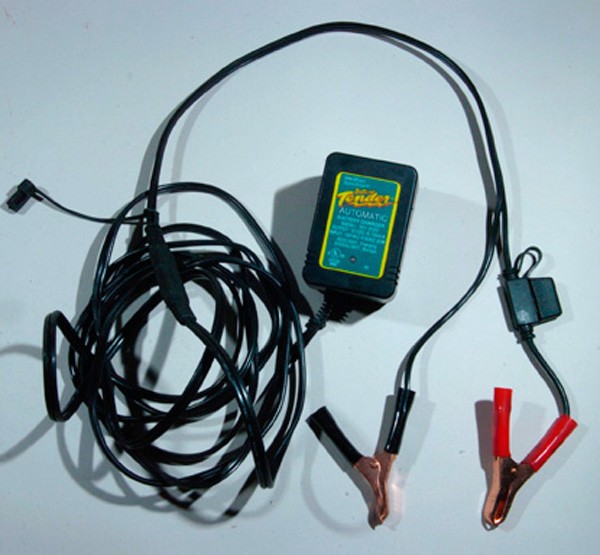
• Connect the battery to a trickle charger for at least eight hours a month. A battery tender can automatically take care of this, and monitor the battery’s status as well.
• Stuff some steel wool into the exhaust pipe to keep out rodents and other small wildlife.
• Check tire pressures and park the bike on pieces of carpet or wood to keep the rubber off the cold concrete floor during the long period of parking. Better yet, park the bike on a stand that keeps its weight off the tires.
• Cover the bike with a canvas tarp, cotton sheet or other breathable cover that will keep the dust off but not promote moisture condensation.
• Store the machine indoors, away from windows.
An alternative to the above list is to have your dealer perform a winterizing service and store your bike for you until spring. If you’re conscientious about maintenance, you’re probably already providing most of the sensible care and preventive care anyway.
Related Articles
First Ride of the Season
Funny Insurance Claims
Insuring Your Motorcycle Accessories
Common Misconceptions About Insurance
Motorcycle Insurance: 5 Commonly Asked Questions


Great article! My father-in-law used to cancel his insurance for the winter, and he saved money at the time.Living in Maryland, winters can be hit or miss. I actually rode this past Saturday in 25 degrees. With a good riding suit, gloves, and Hot Hands/Toasty Toes, it’s possible. I haven’t invested in heated gear yet or grips and I don’t have bikes with all of those features added. Both of my sportbikes love the cold and were super peppy!
Wonderful article! Very sound advice and some new thoughts on winterizing (for me).
Good article! Thanks.